Keynote Speakers
Speakers
![]() Professor Sue Clegg
Professor Sue Clegg
![]() Professor Jürgen Enders
Professor Jürgen Enders
![]() Professor Bob Burgess
Professor Bob Burgess
Professor Sue Clegg
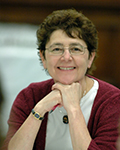 |
Professor Sue Clegg Emeritus Professor of Higher Education Research at Leeds Metropolitan University. |
Keynote Address |
Interview |
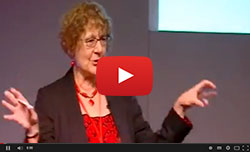 |
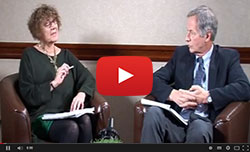 |
System diversity, inequality, curriculum and (possibly) hope
The third quarter of the late twentieth saw a decisive shift from elite to mass higher education systems in most advanced economies, and higher education is expanding globally. Some groups have fared well: women now make up a majority of undergraduates in some systems, but the picture for minority ethnic groups is more complex with some groups becoming more successful while others remain marginalised, and students from lower socio-economic groups still have poorer access and tend to be served by less well-endowed institutions. At governmental level the policy rationale for widening access regards higher education as a route to social mobility and the overall justification for expansion is conceived in neo-liberal terms as serving the competitive needs of the ‘knowledge economy’. There is, however, now considerable evidence that there is a break in the linkage between education, graduate employment, and social mobility. Perhaps more insidiously, under the guise of employability, curricula are undergoing changes designed to enhance the skills students are assumed to require in order to achieve this goal. This keynote will explore the connections between system diversity and curriculum and consider arguments about the importance of social and epistemic access to high-status ‘powerful knowledge’: ‘Powerful knowledge is powerful because of the access it provides to the natural and social worlds and to society’s conversation about what it should be like’ (Wheelahan 2010: 10). I will argue that as newer actors have come into higher education they have created new knowledge challenges to existing disciplines and that these knowledge challenges can be distinguished from curriculum innovations that look outward to the market. It is with these new voices and challenges that I identify the possibility of hope, not just in terms of social justice and access, but also for the questions that get asked in a culture and for the knowledge which is generated inside the academy and the possibilities for social good.
Biographical Note
Sue Clegg is Emeritus Professor of Higher Education Research at Leeds Metropolitan University. She was awarded the Rector’s Award by the University of the Western Cape and the Distinguished Fellow Award by the University of Auckland. She is a Mellon Visiting Scholar at the University of Cape Town and has been a Visiting Professor at the University of Technology Sydney.
Her research draws on critical realism and feminist theory. It includes close-to-practice investigations, often in collaboration with practitioners, as well as more theoretical work. She has explored the social and pedagogical significance of the gendering of information technology and critically analysed the use of these technologies in learning and teaching. She has developed a critique of the debate about the nature of evidence-based practice. In more recent work she has interrogated seemingly mundane pedagogical practices, such as those involved in personal development planning, and explored how these are understood by staff and students and how they are reframed in policy discourse. Drawing on this empirical research she has elaborated on importance of theorising temporality and reflexivity. She has taken a critical look at institutional practices designed to improve teaching, analysing the rhetorical repertoire of learning and teaching strategies and exploring how these strategies are mediated in practice. She has also explored issues of academic identity. Most recently she has been involved in theorising the nature of curriculum and researching extracurricular activity and the formation and recognition of social and cultural capital. She is currently working on the significance of theorising powerful knowledge in higher education and the implications for theorising diversity.
She is Editor of Teaching in Higher Education and sits on the Editorial Boards of Studies in Higher Education and Higher Education Quarterly. She plays a major role in the Society for Research into Higher Education and chairs their Publications Committee.
Professor Jürgen Enders
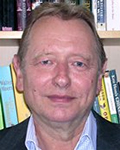 |
Professor Jürgen Enders Professor of Higher Education Management at the University of Bath |
Keynote Address |
Interview |
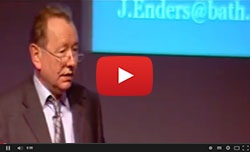 |
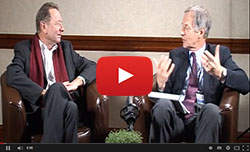 |
In praise of diversity: a socio-political perspective on field dynamics in higher education
With the emergence of mass higher education systemic diversity and programmatic diversity, i.e. diversity of different types of institutions within the field and the services provided by them, has become an important issue in higher education policy and research.
Diversity became to be seen as a near universal good, and stimulating differentiation as a process of increasing diversity within the field as something worthwhile. In this context differentiation between more teaching-oriented and more research-oriented higher education institutions or institutional types became a popular concept.
Subsequently, and accompanied by the notion of innovation systems, the role of higher education in economic innovation became a pertinent issue. De-differentiation between higher education and the economy became widely seen as something good, and cultivating linkages, exchanges, networks and blurring boundaries as also something worthwhile. In this context ‘smart specialisation’ of innovation systems in general and of higher education in particular, also became a popular concept.
This keynote will explore the gap between this rhetoric and the reality of diversity and differentiation from a socio-political perspective. I will argue that the interaction of regulatory and professional forces is:
- undermining attempts at developing further division of work within the field and functional differentiation on equal terms, and
- converging in the ideal of ‘vertical stratification’ as the most legitimate form of diversity and ‘starring into rankings’ as the dominant social practice.
In this context, concern for the wider purposes of higher education has few effective champions. What seems to be happening is a loss of reputation and resources attached to purposes of universities other than their research function and economic innovation function. This risks reducing the diversity, adaptability and resilience of the higher education system as a whole. Public policies are needed that praise diversity by attaching reputation and resources to the wider purposes of higher education.
Biographical Note
Jürgen Enders is Professor of Higher Education Management at the School of Management, University of Bath. His academic interest is focused on the study of institutional change in the field of universities, and their role in society and economy. Major areas of research address (1) the steering, funding and organisation of higher education and research; (2) the socio-economic impact of universities; (3) management/leadership and organisational change in universities; (4) the student experience, employability and graduate careers; and (5) academic work and career. Jürgen also addresses processes of internationalisation and globalisation in higher education and undertakes cross-national comparative research.
Jürgen has been conducting funded research in the field of higher education since the mid 1990s. He came to Bath in 2014, having previously worked at the University of Southampton, as the Director of the Center for Higher Education Policy Studies (CHEPS) in the Netherlands and before that as assistant professor at the Center for Research on Higher Education and Work in Germany.
Jürgen is elected member of the Academia Europaea and of the German Academe of Science and Engineering, and Honorary Fellow of the Society for Research in Higher Education. He is member of the editorial board of the book series 'Higher Education Dynamics' and the journal ‚Higher Education'. He has written and (co)edited 14 books, and published more than 100 articles in books and journals. Recently funded projects include 'Transforming Universities in Europe' and 'Re-Structuring Higher Education and Scientific Innovation: The consequences of changes in authority relations for the direction and organisation of research' (both projects are international studies supported by the European Science Foundations and a number of European Research Councils), 'Formative Evaluation of the International Fellowship Program, IFP' (commissioned by the Ford Foundation), and 'The Role of New Professionals in Higher Education for Teaching and Learning' (funded by the German Ministry of Education and Research).
He is member of the Advisory Committee for Research and Knowledge Exchange of the Higher Education Funding Council for England, of the German Advisory Council for Education, and of the R&D committee of the European Federation for Management Development. He also served as an advisor to the Dutch Association of Universities, the Swiss Science and Technology Council, and as a reviewer to the Excellence Initiative of the German Research Foundation.
Professor Bob Burgess
Robert Burgess is Vice-Chancellor of the University of Leicester and Chair of the Higher Education Academy, the UUK/Guild HE Teacher Education Advisory Group and NatCen Social Research. He is also a member of the UCEA Board and an Academician of the Academy of the Social Sciences. He has Chaired the UUK/Guild HE Implementation Group on the Higher Education Achievement Report and Degree Classifications on which he has produced four reports and now Chairs the Higher Education Achievement Report Advisory Committee. He was awarded a Knighthood in 2010 for services to Higher Education locally and nationally and was awarded the Lifetime Achievement Award at the Midlands Business Awards in February 2012.
He has held national roles in a range of major organisations including: President of the British Sociological Association, President of the Association for the Teaching of the Social Sciences and Founding Chair of the UK Council for Graduate Education. He has been a member of the Council of the Economic and Social Research Council and a member of the British Library Board. He has been Chair of the Postgraduate Training Board of the Economic and Social Research Council and Chair of the Universities and Colleges Admissions Service (UCAS) and the Research Information Network.
His main publications include: Experiencing Comprehensive Education (1983), In the Field: An Introduction to Field Research (1984), Education, Schools and Schooling (1985), Sociology, Education and Schools (1986), Schools at Work (1988 with Rosemary Deem), Implementing In-Service Education and Training (1993 with John Connor, Sheila Galloway, Marlene Morrison and Malcolm Newton), Research Methods (1993) and Reflections of the University of Leicester (2010 with Joanne Wood) together with over twenty-four edited volumes on qualitative methods and education and over one hundred articles and book chapters.
SRHE Presidential Address |
|
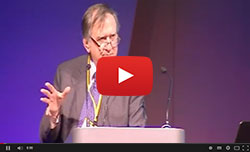 |

the global higher education research community…






